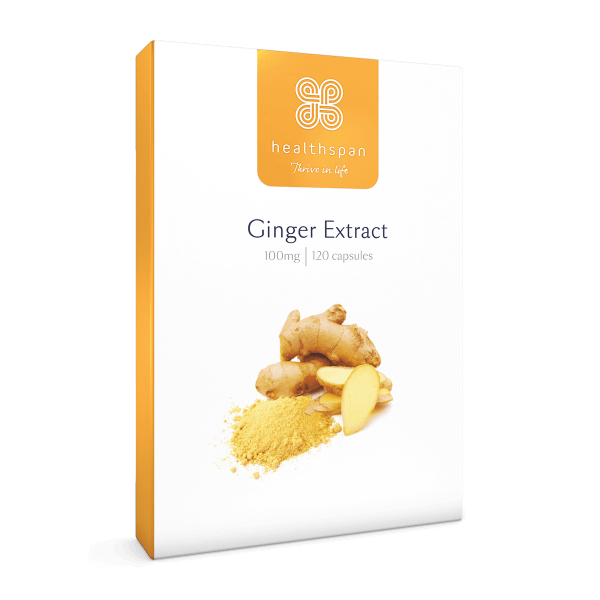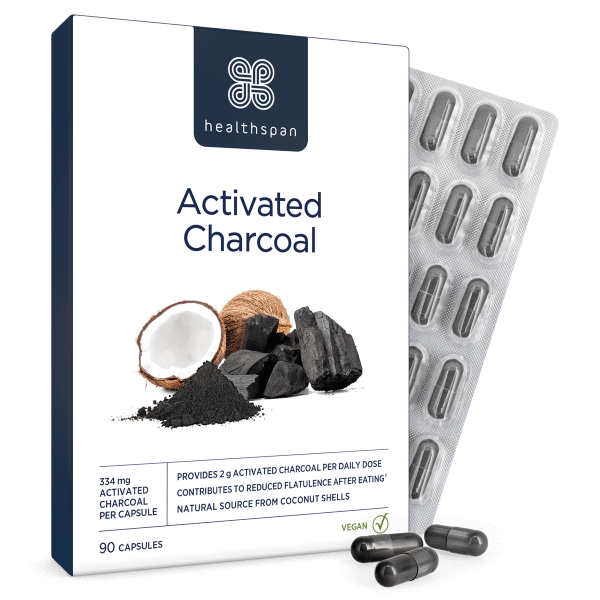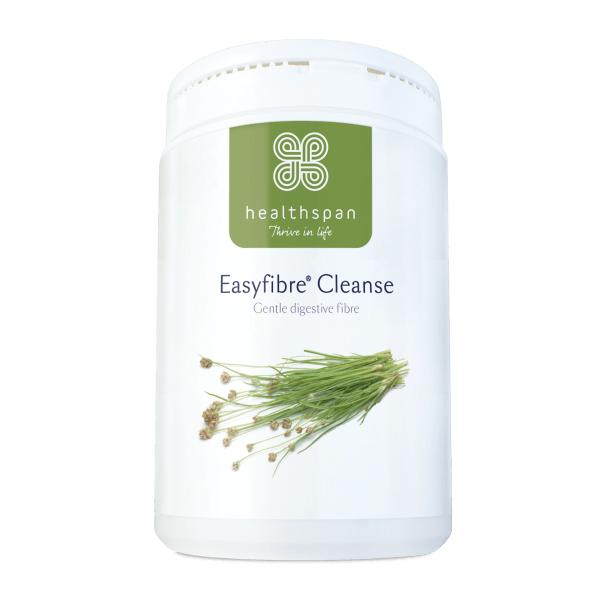Party season is here, and although there's plenty of joy to be had at this time of year, alcohol and rich food can take their toll on your tummy. Here Dr Hilary Jones covers the reasons behind common digestive problems and what you can do to help.
🕒 6 min read
The festive season is a time to eat, drink and be merry. The problem is that all this fun can come at a price. It's tempting to overindulge when gorgeous food is on offer, particularly when it's in plentiful supply and complemented by a wide choice of alcoholic beverages. The result is often indigestion, a hangover and a promise to oneself that it will never happen again. If only!
Indigestion
This is a blanket term for inconvenient and unpleasant symptoms that may affect any part of the alimentary canal, from the mouth right down to the other end.
The following conditions are all common and usually self-limiting, but this guide will help you understand the causes, symptoms and remedies for each.
It often amazes me that however much we abuse our intestines they are usually capable of bouncing back and recovering on their own. Despite this, we really should try to look after our guts a little better, and there are many lifestyle tweaks or supplements that can help.
Nausea and vomiting
These reactions may be caused by many things. An upset stomach due to a viral infection or food poisoning, hangovers, medicines that disagree with us, migraines, vertigo, constitutional illness, and even psychological problems such as anxiety and panic attacks.
During the festive season, nausea is often caused by overindulgence and too much excitement and alcohol. It's a common symptom and mercifully one that is usually self-limiting and short-lived.
If you're feeling nauseous or have vomited, it's important to get plenty of fresh air, distract yourself and take regular sips of cold, clear fluids.
Useful supplements to relieve symptoms include ginger or peppermint tea, or even ginger biscuits. Ginger also works well for pregnancy morning sickness.

Ginger Extract
Equivalent to 12,000mg of whole ginger root
- Helps to support digestion
- Providing 20mg gingerols
- Standardised extract
Heartburn
This is one of the most common symptoms we see in general practice. It's caused by strong stomach acid refluxing up into the sensitive gullet, causing burning and belching.
Diet has a lot to answer for, because eating too much and particularly too much fatty and spicy foods will encourage the secretion of stomach acid and overcome the efficiency of the valve at the lower end of the gullet, which usually prevents the flow of acid upwards. Alcohol, stress and smoking may all contribute.
Avoiding these trigger factors and eating blander foods little and often helps, as does raising the head of your bed by 10 to 20cm to allow gravity to assist with keeping the acid where it should be.
Relief can be obtained through aloe vera to calm the gullet, sodium bicarbonate to neutralise the acid, and sodium alginate, which acts like a gel-like raft on top of the stomach acid to prevent reflux.
Bloating
Most of us will experience bloating from time to time. This is especially true when we indulge in too much rich, spicy or fatty food, such as during the festive season, when the problem is often compounded by a higher intake of alcohol.
Bloating can also occur if we swallow air when eating with our mouth open, or when we are anxious. Consumption of too many fizzy drinks or a diet high in certain vegetables that ferment and produce a lot of gas, such as sprouts and beans, may also be responsible.
Exercise can really help, as does eating little and often and taking activated charcoal to absorb intestinal gas. Occasionally bloating can have a more serious underlying cause such as ovarian cysts or inflammatory bowel disease, so always see your GP if symptoms persist.
Wind and flatulence
This can be an embarrassing topic for many. Everybody will pass wind to some extent, but for some it can become a problem, particularly if it is associated with bloating and abdominal cramps.
Sometimes the cause is easily identifiable. Eating too quickly with one's mouth open means we swallow too much air, but that air can also come from the consumption of fizzy drinks.
Our microbiome – the population and balance of friendly bacteria within the gut – is also relevant, as an imbalance can allow the fermentation of foods to produce excessive gas.
Certain foods such as sprouts, beans, fruit, dips, sauces and condiments are renowned for causing problems. Avoiding these, eating little and often and taking regular exercise will assist with digestion and absorb wind. Activated charcoal and probiotics are excellent supplements to help with the problem.

Activated Charcoal
Reduces excessive flatulence after eating
- Relieve post-meal discomfort and avoid embarrassment from excess gas
- Activated charcoal promotes digestive comfort
- 334mg activated charcoal per capsule; 2000mg (2g) per daily dose
Diarrhoea and constipation
The normal regular function of the bowel depends on many factors. Our diet is certainly important, but so is our general gut health, as bowel function is so dependent on the friendly bacteria within our intestine and the activity of our nervous system, influenced as it is by stress and tension, anxiety and mood.
Overindulgence at times of celebration never helps, and food poisoning and gastroenteritis are highly likely to cause diarrhoea, often with abdominal pain.
Constipation may be the result of dehydration or a diet lacking in fibre. In either case probiotics are particularly useful in restoring normal digestion, while digestive enzyme supplements and multivitamins can replace enzymes and nutrients in the body that have been disrupted.

Pro Live Cultures 20 - Super Strength
Supports a healthy gut
- 20 billion live cultures from 5 well-researched strains
- Contains Lactobacillus acidophilus, Lactobacillus paracasei, Bifidobacterium lactis and Bifidobacterium bifidum
- Supports the protective intestinal microflora in the gut
Irritable bowel syndrome
IBS is a common condition affecting the digestive system, causing tummy cramps, bloating and intermittent diarrhoea and constipation. The symptoms tend to come and go, and are not usually permanent. Nevertheless, the condition can be frustrating to live with and can seriously affect your everyday life.
Once any more serious conditions have been excluded and the diagnosis confirmed, there is much you can do to avoid flare-ups:
- Keep a diary of what you eat and identify trigger factors so you can avoid them.
- Exercise regularly and learn to relax.
- Take probiotics, which help the friendly bacteria in the gut to promote normal digestion.
- If dietary fibre causes bloating and wind, try supplemental fibre, such as that from psyllium seeds, which absorb many times their weight in water from the body. This can help bulk up the stool and promote the efficient elimination of waste products.

Easyfibre® Cleanse
A natural and simple solution to help increase your fibre intake
- Formulated using the highest quality seed husks from Plantago ovate, otherwise known as blonde psyllium
- Can be sprinkled over your cereal or porridge, or added to a glass of water or juice






